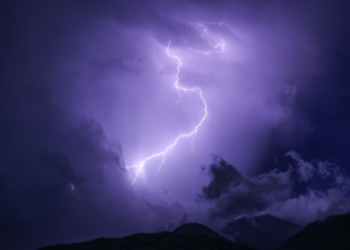Wilderness
Tremendous Value Rests in Untamed Places
What is Wilderness? ¿Qué es un área natural?
Think about where you are at this very moment, reading these words. Think about the land beneath your feet, under your seat, and right outside your window. Chances are that your current location is like much of the rest of our planet today - dramatically altered and under the direct control of human beings, utterly unrecognizable in terms of its prehistoric qualities. These changes might have improved your current comfort, but something valuable and increasingly rare has been lost in the taming of where you are now.
"In order to assure that an increasing population, accompanied by expanding settlement and growing mechanization, does not occupy and modify all areas within the United States and its possessions, leaving no lands designated for preservation and protection in their natural condition, it is hereby declared to be the policy of the Congress to secure for the American people of present and future generations the benefits of an enduring resource of wilderness.” - Excerpt from The Wilderness Act of 1964
Consider your dependence on technology in your day to day life. How reliant are you on motorized or mechanized vehicles for your transportation needs? How long has it been since you’ve been without an outlet to charge your smartphone? How much do you depend on your furnace when it’s cold and your air conditioner when it’s hot? How able are you to thrive in the absence of grocery stores and permanent shelter? Are skills like these even relevant in your daily routine?
Wilderness is the exception.
The National Wilderness Preservation System is a network of public land administered for the American people by the federal government. These are special places where nature still calls the shots. Places where people like you, with an appetite for adventure, can find a sense of true self-reliance and experience solitude. To get there you will have to leave your vehicle behind and hit the trail.
Wilderness areas are worth the journey. They are the final holdout refuges for a long list of rare, threatened, and endangered species, forced to the edges by modern development. They are the headwaters of critical, life-infusing rivers and streams. They are also the current and ancestral homelands of Tribal Nations and Indigenous peoples, many of whom have deep cultural, historic, and spiritual connections to these places.
"If future generations are to remember us with gratitude rather than contempt, we must leave them a glimpse of the world as it was in the beginning, not just after we got through with it.” - Proclaimed by President Lyndon B. Johnson upon his signing of The Wilderness Act, September 3rd, 1964
In addition to the Forest Service, the Bureau of Land Management, Fish & Wildlife Service, and National Park Service are charged with stewardship of these lands while providing for appropriate human use and enjoyment. To find out more about these special places, we encourage you to visit Wilderness.net, a website jointly managed by the University of Montana and the four federal agencies that manage wilderness.
Ethics

Outdoor ethics is based on the idea that we are all stewards of the environment and should provide careful and responsible management of our great outdoors so that this generation and those to come can enjoy it.
Packstock Center of Excellence
The Pack Stock Center of Excellence provides regional coordination for the efficient utilization of pack stock program resources to support the efforts of wilderness managers in preserving wilderness character.
Backcountry Safety

Information to stay safe while exploring Wilderness Areas







